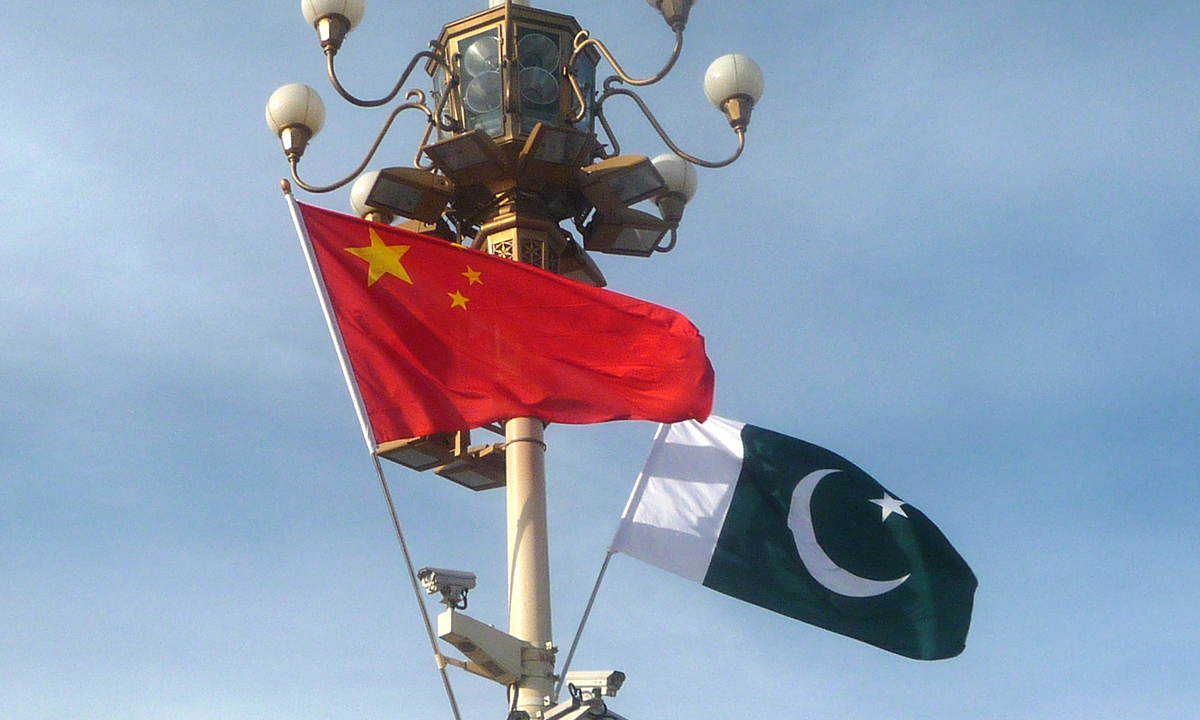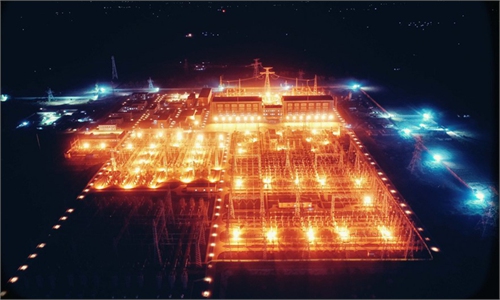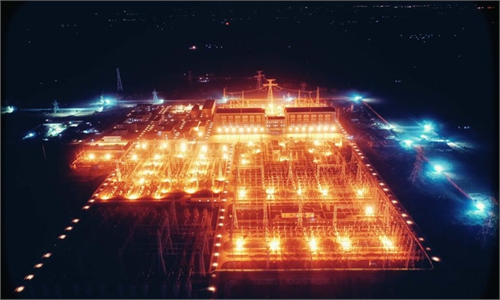
China Pakistan Photo:VCG
While imagining China-Pakistan relationship, I cannot help but recall the 1985 Hollywood sci-fi film Back to the Future, in which the protagonist's existence in the "present" and "future" was compromised. He was left with little choice but to make timely intervention by travelling through a time machine to fix the past and present, thereby securing his future. The China-Pakistan relationship is far from science fiction. To understand its future one has to delve into its past. We find not just two nations cooperating with each other but two civilizations that could not be what they are today had they not mutually informed and enriched one another. Today, many within these two civilizations are not aware of their mutually enriching relationship with each other. It is important that they understand this historical relationship in order to see the bright and mutually beneficial future relationship.Most Chinese people reside inside China. On the other hand, 220 million Pakistanis are only 11 percent of the nearly 2 billion Islamic civilization. China-Pakistan cooperation, therefore, is not between two entire civilizations. Pakistan is only one of the 57 Muslim countries. Pakistan sees itself as a part of the larger Islamic civilization whose boundaries spill over beyond the 57 states into other very large minorities that reside under other civilizations such as inside the Russian Eastern Orthodox, Indian, African and Chinese civilizations, not to forget large numbers of Muslims living in the West. Hence, whereas Pakistan-China cooperation can be easily conceived of at a bilateral national level, it may require some intellectual effort to conceive of it on a civilizational level.
In traditional Islamic and Chinese cultures, the whole is considered more important than the part. To gain an insight into the past, present and future of Pakistan-China cooperation, we must not lose sight of the relationship between the two wholes, the greater Chinese civilization and the greater Islamic civilization. If we look at one entire whole and its relationship with only part of the other, it may do injustice to the vastness of its past, and hence belittle its present.
China and Pakistan are not only national neighbors but civilizational neighbors. Islamic and Chinese international relations are not guided by the maxim that "there are no permanent friends and allies, only permanent interests." This maxim reflects a rather narrow and petty mentality of modern political thought because it is based not on virtue, but selfishness. As the Taoist classic Taishang Induction Chapter said, "See others' gain, as your own gain. See others' loss as your own loss." The Confucian classic Doctrine of the Mean also says, "conceal the faults of others and praise their good points." In light of our own beliefs, in Pakistan we aspire to be good neighbors to China, however, we feel that China has already performed the role of an excellent neighbor for us over decades and centuries, as a nation and as a civilization.
Compared to the Chinese civilization, Islamic civilization is very large in its geographical expanse. If we compare the Western borders of the Muslim world with its Eastern borders, we see a sharp contrast. Unfortunately, from crusades to colonialism to contemporary Islamophobia, we see an adversarial relationship with the Western world whose painful memories live on after 1492 when Muslims and Jews were expelled from their eight-centuries-old domiciles in Europe. On the Eastern borders of the Islamic civilization, however, there is no 1492. Instead, we find cooperation, integration and connectivity. The Silk Road is living proof of how people, goods and ideas travelled across the Eurasian continent and enriched everyone along its path. Chinese familiarity with this region predates Islamic civilization. Monk Marananta spread Buddhism in China and South Korea from Taksashila (today's Taxila, near Islamabad). Similarly, under various Chinese dynasties, spiritual and scientific ideas travelled omni-directionally across different parts of Asia.
This condition was a norm until the rise of the modern West when the civilizations succumbed to narrower and parochial national identities. Today, when the contemporary Chinese scholars talk about the rise of a civilization, partnership between civilizations gives great hope to the Islamic world that the chance to overcome the 19th-century externally imposed fragmentation is not far away. After all, the Islamic world was always a system of sub-civilization states, just as China was a civilization-state.
Out of the two millennia-old history of the Silk Road, over a millennium of its history is also part of Islamic and Chinese histories. The later millennium of the Silk Road was more secure than the earlier one because of the security provided by various emperors, kings, caliphs and sultans. Without adequate security, there could not be any trade. Hence, in light of history, China-Pakistan Economic Corridor (CPEC) is not a new thing. It is a revival of an older phenomenon which, unfortunately, halted temporarily. However, there are still powerful forces that want to maintain the status quo in an attempt to hegemonize Asia. They spread the politics of fear and hate in the form of Sinophobia, Russophobia and Islamophobia. People of Pakistan, China and Russia have little choice but to defeat and overcome these challenges by preserving their unity for the heart of Asia.
The author is Chairman of National Rahmatul Lil Alamin Authority (NRA). Prof. Akram is also a Visiting Professor of Religion & World Politics in Southwestern University of Political Science & Law, Chongqing, China. opinion@globaltimes.com.cn


